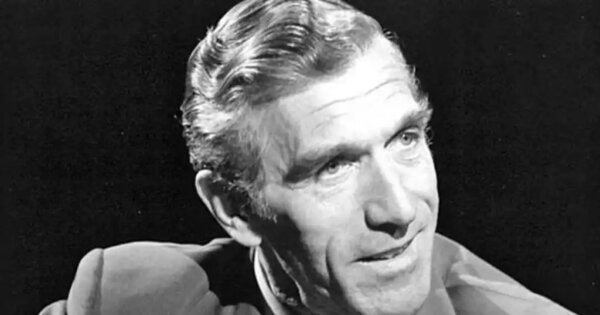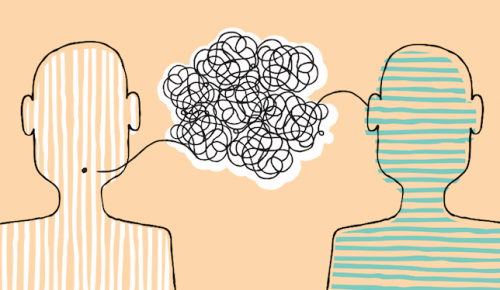Paul Watzlawick wrote the internationally recognized book, The Art of Becoming Bitter. He was a key figure in the field of psychology. He was renowned for his contributions to communication theory and psychotherapy.
The Art of Becoming Bitter is a self-help book. In it, the author compiles a list of harmful attitudes and behaviors that you often carry out without even realizing it.
The purpose of the book is to invite you to uncover certain things you unconsciously do in your daily life that hinder you and slow down your personal growth.
In short, you need to detect these behaviors and attitudes so that you can change them. As Watzlawick states, they’re unconscious attitudes that embitter your life. In this article, we highlight some important aspects of his book.
Paul Watzlawick, above all, be true to yourself
He places special emphasis on the importance of being true to yourself. In other words, do what you really want to do, in harmony with your thoughts and feelings.
As the author states, being true yourself means believing that there’s only really one correct opinion, your own.
In this sense, being true to yourself means taking responsibility for the choices you make by listening to your inner voice. Indeed, to pursue your dreams and goals, no matter what others may think.
For this reason, you should ask yourself what you need in order to achieve your own well-being. What are your dreams? Have you chosen your life experiences or have they been chosen for you?
There’s no better way to become bitter than by not being true to yourself.
Self-fulfilling prophecies
Watzlawick claims that self-fulfilling prophecies create a certain reality, almost as if by magic. In other words, what you believe comes true.
For example, if you believe you’ll fail an exam, it’s likely that you’ll modify your behavior in accordance with this belief, as beliefs condition your behavior.
Therefore, if you really think something’s going to happen, it probably will. Because you end up acting that way. Hence, self-prophecies tend to make you bitter. How can you not be bitter when you’re anticipating and worrying about what’s going to happen before it does?
“If you treat an individual as he is, he’ll remain how he is. But if you treat him as if he were what he ought to be and could be, he’ll become what he ought to be and could be.”
-Johann von Goethe-
Demanding spontaneity
Paul Watzlawick talks about the paradox of demanding spontaneity. For example, say your partner never buys you flowers and you complain to them about this. You still complain, as they only did it because you asked them to. In fact, your demand for spontaneity has effectively removed the spontaneity itself. You end up feeling bitter because you’ve tried to impose a “spontaneous” behavior on your partner.
It’d be far easier to allow behaviors and emotions to occur naturally without trying to impose them. For Watzlawick, this kind of imposition leads to bitterness.

Anyone who loves me must be out of their mind
Watzlawick states that Dostoyevsky claimed the biblical text that claims, “Thou shalt love thy neighbor as thyself” should be understood the other way around. In other words, you can only love your neighbor when you love yourself.
For instance, you might make yourself bitter by focusing all your attention on loving a particular person, yet doubting that they’ll ever love you. However, what you should do is start by loving yourself. Because self-love is the foundation of all love. Of course, you’re going to doubt that a person will love you if you don’t love yourself. If you can’t find reasons to love yourself, how can you find reasons for someone else to love you?
In conclusion, there are infinite ways to make your life bitter. Furthermore, it’s likely that many of these go unnoticed, as they occur without you even noticing. However, Paul Watzlawick provides a different perspective of the everyday situations that make you bitter. He suggests the process of slow personal growth and development.
In short, stop embittering your life with negative attitudes and beliefs. Instead, focus on what’s really important and beneficial for your well-being.
“The best things in life are yours, if you can appreciate yourself.”
-Dale Carnegie-
The post Paul Watzlawick and the Art of Becoming Bitter appeared first on Exploring your mind.













Comments